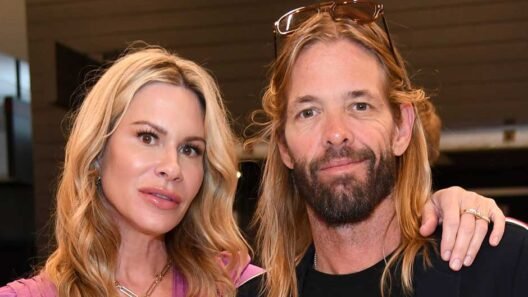Who Was Jackie Witte?
Hollywood’s golden era holds countless untold stories, tucked away behind the glittering curtain of fame. Among these forgotten tales is that of Jacqueline Emily Witte—Jackie to those who knew her—Paul Newman’s first wife. When Jackie Witte died in 1994, there was no public obituary, no fanfare, no headlines. Yet her story deserves telling.
Jackie’s life was marked by love, sacrifice, heartbreak, and ultimately, a conscious decision to live away from the spotlight. While the world celebrated Paul Newman’s legendary 50-year marriage to Joanne Woodward, few people knew about the woman who came first. The woman who helped shape the man who would become an American icon.
Her story represents something different from typical Hollywood narratives—the strength to walk away from fame and choose privacy over publicity. This is the obituary Jackie Witte never received, a tribute to a woman whose story matters.
Early Life and Background
Jackie entered the world on September 15, 1929, in Cook County, Illinois, during the early days of the Great Depression. Growing up in the Midwest, she nurtured dreams that would eventually lead her to the theater world where fate would introduce her to her future husband.
Those who knew Jackie described her as a tall, striking blonde with dark eyes and a naturally reserved personality. She possessed a quiet elegance that set her apart from the typical starlets of her era. Where Hollywood often celebrated the loud and gregarious, Jackie was thoughtful and retiring.
Before meeting Paul Newman, Jackie pursued her own entertainment industry dreams. She worked as both an actress and model, chasing the same aspirations that drew countless young women to seek their fortunes in show business during the post-war years.
Meeting Paul Newman: A Summer Romance
Summer 1949 changed everything for both Jackie Witte and Paul Newman. At just 19, Jackie met 24-year-old Paul during a summer stock theater production. Paul, fresh from Navy service in World War II, was pursuing his acting dreams with the focused determination of someone who’d seen the world.
Their meeting felt like destiny—two young people connected by their shared passion for theater and dreams of making it in entertainment. The chemistry was immediate and intense, built on mutual understanding of the struggles that came with pursuing an acting career.
Within months, both had moved to work with a theater company in Woodstock, Illinois. Their relationship developed quickly, founded on shared goals and what seemed like genuine love between two ambitious young people ready to conquer the world together.
On December 27, 1949, just months after first meeting, Jackie Witte became Mrs. Paul Newman in Cleveland, Ohio. She was barely 20; he was 24. Two young people deeply in love, ready to build a life together.
Marriage and Family Life
The early years brought both joy and unexpected challenges. Shortly after their wedding, Paul’s father died, forcing the couple to move to Cleveland to help run the family sporting goods business. This detour temporarily sidelined both their acting dreams but brought them their first child.
In 1950, Jackie gave birth to Alan Scott Newman, later known simply as Scott. His arrival marked Jackie’s gradual shift from aspiring actress to devoted mother. Two more children followed: Susan Kendall Newman in 1953 and Stephanie Lynn Newman in 1954.
During these years, Jackie made considerable sacrifices for her family. While Paul wrestled with choosing between family responsibility and acting dreams, Jackie set aside her own career aspirations to focus on raising their children. She didn’t completely abandon her professional goals, though. When finances required additional income, Jackie took the train to New York City for modeling work, successfully establishing herself as a full-time model.
The family dynamics were complicated. Paul felt torn between his obligation to the family business and his burning desire to act. Jackie managed the household and children while contributing financially through modeling. Despite the challenges, friends remember them as a young couple genuinely trying to make their marriage work while pursuing individual dreams.
Jackie’s personality during this time was supportive but increasingly strained. Raising three young children while her husband struggled with career decisions took its toll on her own aspirations and well-being.
The Strain of Paul’s Rising Fame
As Paul Newman’s acting career gained momentum, cracks in their marriage began showing. When Paul decided to give himself one final year to pursue acting before potentially abandoning his dreams, it meant extended periods away from home, leaving Jackie to manage three small children mostly alone.
Things became particularly difficult when Paul landed his breakthrough role in Broadway’s “Picnic.” While this was the career break he’d hoped for, it meant even more time away from family. Jackie found herself handling daily motherhood challenges, including two-year-old Scott’s frequent tantrums, without her husband’s support.
Friends noticed the growing strain. One acquaintance later recalled how their personality differences became more apparent: “Her nature is shy and retiring, while Paul’s is gregarious. He likes late gatherings of writers and actors… But you seldom saw Jackie.”
The contrast between Jackie’s private nature and Paul’s increasingly social professional life created a widening divide. While Paul thrived among fellow actors and writers, often staying out late networking and socializing, Jackie remained home, feeling increasingly isolated and resentful of her husband’s absence.
This period marked the beginning of Jackie’s disillusionment with the entertainment industry and its demands on families. As Paul’s career prospects brightened, Jackie’s own dreams seemed to fade, replaced by the relentless demands of single-handedly managing a household with three young children.
The End of Marriage: Joanne Woodward’s Arrival
The final chapter of Jackie and Paul’s marriage began when Paul was cast alongside young Southern actress Joanne Woodward in “Picnic.” Joanne, just 22, was beautiful and talented, sharing Paul’s passion for acting and his outgoing nature.
The attraction between Paul and Joanne was immediate and obvious to everyone around them. Unlike Jackie, who’d grown weary of the entertainment industry’s demands, Joanne embraced the same late-night gatherings and artistic discussions that energized Paul. As one friend observed, they were “two highly attractive people with a deep mutual interest and an obvious feeling of companionship.”
As Paul’s relationship with Joanne became increasingly public, Jackie faced the humiliating reality of her husband’s very public affair. The entertainment industry, which had already taken so much from her, was now taking her husband too. Despite obvious signs and growing public speculation, Jackie initially refused to acknowledge her marriage’s end.
When Paul finally confessed his love for Joanne and asked for a divorce, Jackie refused to sign the papers. Having sacrificed her own career and dreams for their family, Jackie felt she’d earned the right to share in Paul’s success. She’d been there during the struggling years, supporting him through doubts and career setbacks. She wasn’t prepared to simply walk away.
The situation reached its breaking point when news emerged that Joanne Woodward was pregnant with Paul’s child. This revelation became the final straw that broke Jackie’s resistance. Faced with undeniable evidence of her husband’s commitment to another woman, Jackie finally agreed to divorce.
On January 28, 1958, Jackie Witte’s marriage to Paul Newman officially ended, concluding nine years that had begun with such promise and hope.
Life After Divorce: Choosing Privacy
Following her divorce from Paul Newman, Jackie Witte made a decision that would define the rest of her life: complete privacy over any attempt to capitalize on her connection to Hollywood’s rising star. This choice contrasted sharply with the very public life Paul and Joanne Woodward would live together.
Jackie’s withdrawal from public life was total and deliberate. She avoided interviews, refused to discuss her marriage to Paul Newman, and made no attempts to profit from her story or connection to one of Hollywood’s most beloved figures. This decision required tremendous strength and dignity, especially as Paul and Joanne’s relationship became one of Hollywood’s most celebrated love stories.
During these years, Jackie focused entirely on raising her three children away from the spotlight. She was determined to give them as normal a life as possible, despite their father’s growing fame. Details of her personal life during this period remain largely unknown, including whether she ever remarried or found love again.
Those who knew Jackie during this time respected her choice to maintain privacy. She’d experienced firsthand the cost of fame and the entertainment industry’s demands on personal relationships. She wanted no part of it. Her decision to step away from the public eye wasn’t born of bitterness, but from a clear understanding of what she valued most: her dignity, privacy, and her children’s well-being.
Jackie’s choice to live privately also meant missing out on public recognition that might have come with being Paul Newman’s first wife. As Paul’s fame grew and his marriage to Joanne became legendary, Jackie remained a footnote in his story, known only to those who took time to research his early life.
Jackie Witte’s Death: The Obituary That Never Was
On May 19, 1994, Jackie Witte passed away at age 64 in New York City. True to the private life she’d chosen, her death wasn’t announced publicly, and no obituary appeared in major newspapers. The woman who’d once been married to one of America’s most famous actors died as she’d chosen to live after her divorce: quietly and away from public attention.
The circumstances surrounding Jackie’s death remain as private as she’d kept her life. Her family never disclosed the cause of death, and even the specific location of her burial remains unknown. This level of privacy, maintained even in death, speaks to the family’s commitment to honoring Jackie’s wishes to remain out of the public eye.
The absence of a public obituary for Jackie Witte is particularly striking given her connection to Paul Newman, who was at the height of his fame and philanthropy in 1994. However, this absence also serves as a final testament to her successful effort to live life on her own terms, away from the spotlight that had once caused her so much pain.
For those who search for “Newman first wife Jackie Witte obituary,” they find only scattered fragments of information across various sources, much like the private life she chose to live. Her death, like her life after divorce, was marked by dignity, privacy, and a deliberate choice to avoid the public attention that her connection to Paul Newman might have brought.
The lack of a traditional obituary doesn’t diminish the significance of Jackie Witte’s life or her impact on those who knew her. Instead, it serves as a powerful reminder that some people choose to measure their lives not by public recognition, but by private relationships and personal values they hold dear.
Legacy and Remembrance
Jackie Witte’s legacy is complex and multifaceted. To her children, she was a devoted mother who sacrificed her own ambitions to provide them with stability and love. To those who knew her personally, she was a woman of dignity who handled difficult circumstances with grace and strength.
Paul Newman himself later reflected on their marriage with regret and acknowledgment of his own shortcomings. In interviews, he admitted, “I was probably too immature to make a success of my first marriage.” He also confessed to being “guilty as hell” about how their marriage ended, saying he would “carry it with me for the rest of my life.”
These admissions from Paul Newman provide insight into the impact Jackie had on his life and his understanding of their relationship. Despite the pain of their divorce, Paul recognized the sacrifices Jackie had made and the role his own immaturity played in their marriage’s failure.
Jackie’s choice to remain private after her divorce also speaks to a different kind of strength than what Hollywood typically celebrates. In an industry that often rewards those who seek attention and publicity, Jackie chose the opposite path. She found strength in privacy, dignity in silence, and peace in a life lived away from cameras and gossip columns.
Her story serves as a reminder that behind every famous person are often others who played crucial roles in their development but chose not to seek recognition for their contributions. Jackie Witte was instrumental in Paul Newman’s early life and career, providing support during his struggling years and helping to raise their three children.
Conclusion: A Life Lived on Her Own Terms
Jackie Witte’s story is ultimately one of a woman who chose authenticity over fame, privacy over publicity, and dignity over drama. In a world that often celebrates those who seek the spotlight, Jackie’s deliberate choice to step away from it represents a different kind of courage.
Her life reminds us that not all important stories are told in headlines or celebrated in award ceremonies. Sometimes the most meaningful lives are lived quietly, measured not by public recognition but by personal integrity and love shared with family and close friends.
While Jackie Witte may not have had a traditional obituary when she passed away in 1994, her story deserves to be remembered and honored. She was more than just Paul Newman’s first wife; she was a woman who faced heartbreak with dignity, chose her children’s well-being over personal gain, and lived her final decades exactly as she chose.
In remembering Jackie Witte, we honor not just her memory, but the countless others who choose to live meaningful lives away from public attention. Her story is a testament to the strength found in privacy, the dignity maintained through difficult circumstances, and the peace that comes from living life on one’s own terms.
This is the obituary Jackie Witte never had—a tribute to a woman whose life mattered, whose choices had meaning, and whose story deserves to be told with the respect and dignity she maintained throughout her life.













